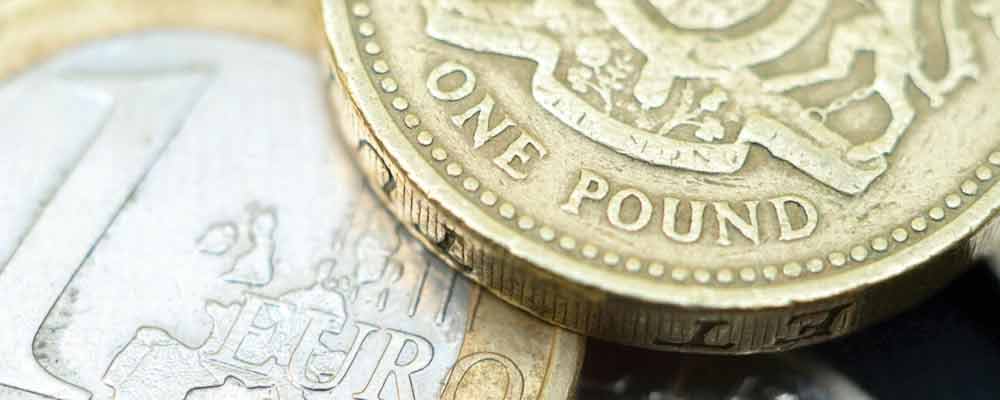Pound Euro (GBP/EUR) Exchange Rate Climbs as Sunak Appointed PM
The Pound Euro (GBP/EUR) exchange rate is climbing today despite a risk-off market mood. The Pound (GBP) may be seeing continued support from the appointment of Rishi Sunak as UK Prime Minister.
Fears of a Eurozone recession may also be pushing GBP/EUR higher, as well as further escalations in the Russia-Ukraine conflict.
At time of writing the GBP/EUR exchange rate is at around €1.1489, which is up roughly 0.5% from the morning’s opening figures.
Pound (GBP) Boosted by Confidence in Sunak as PM
The Pound (GBP) is seeing gains today off the back of Rishi Sunak’s appointment as the UK’s new Prime Minister. There is hope from markets and Conservative MPs that will be able to unite the party and ease some of the prior week’s turmoil.
Comments from Bank of England (BoE) Deputy Governor Dave Ramsden regarding Sunak’s appointment may also be boosting GBP today. Ramsden stated that the day’s drop in borrowing costs signalled that ‘credibility is being recovered’.
There is still uncertainty surrounding Sunak’s approach to fiscal policy ahead of the expected 31 October reveal of the UK’s medium-term fiscal strategy.
There are also hopes from UK businesses that Sunak will pursue policies designed to stimulate growth, such as immigration reforms.
Tony Danker, head of the Confederation of British Industry (CBI), said:
‘Yes, we need to stabilise things first and foremost, but if we don’t have a plan for growth then I’m afraid there aren’t good outcomes in the next decade.’
Data from the CBI could be capping gains for the Pound today. Business confidence in the manufacturing sector fell at its fastest pace since the UK’s first Covid-19 lockdown.
Euro (EUR) Drops amid Warnings of German Recession
The Euro (EUR) is slipping today despite a risk-off market mood. A drop in German business confidence is likely weighing on the single currency amid fears of a Eurozone recession.
The Ifo’s business confidence index fell from 84.4. to 84.3 in October. Whilst the figures were better than expected, they still point to a downturn in business’ faith amongst high inflation and soaring energy costs.
Following the release of the data, the Ifo forecast that Germany, the trading bloc’s largest member, is set contract in the fourth quarter of 2022.
If this data prints in line with the Ifo’s forecasts then it would signal a recession for Germany.
